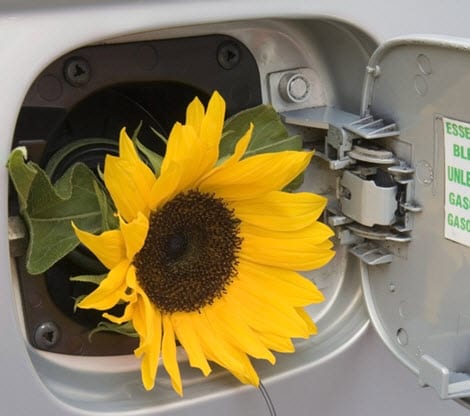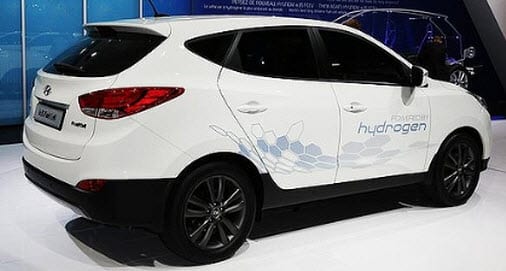
Air Fuel Synthesis creates new clean fuel for vehicles
October 29, 2012Air Fuel Synthesis uses hydrogen to produce new kind of clean fuel
Hydrogen is currently the most popular clean fuel that is expected to revolutionize the future of transportation, but it may soon be nothing more than a step in a larger equation that produces another clean fuel. Late last week, a small British company called Air Fuel Synthesis suggested it was possible to produce vehicle fuel from air, using hydrogen as a component in the process. Such an accomplishment could have profound implications for the environment, most notably removing large amounts of carbon dioxide from the atmosphere, which would itself be captured and converted into clean fuel through the process.
Process converts CO2 into vehicle fuel
Air Fuel Synthesis has developed a process whereby carbon dioxide can be condensed on a molecular level and used to produce a fuel that is very similar to petroleum, though much more environmentally friendly. Such a process has been achieved in the past by energy companies outside of the UK. Typically, these initiatives would capture carbon dioxide and use it to produce methanol. Air Fuel Synthesis aims to produce a different type of fuel that will be more efficient than methanol.
CO2 combined with hydrogen
During the process, CO2 is combined with hydrogen molecules that are separated from water vapor. Through this combination, Air Fuel Synthesis has been able to produce a fuel that can be put directly into any conventional fuel tank and used by any vehicle that runs on petroleum. The fuel burns clean, producing no emissions whatsoever. Researchers with the firm suggest that this fuel production process could be a viable way to remove carbon dioxide emissions from the atmosphere, eliminating what harmful effects greenhouse gases may have.
Process may be commercialized, eventually
Air Fuel Synthesis has already successfully produced 5 liters of this new, clean fuel. The production of this fuel was part of a two year demonstration project, in which the firm aimed to prove the viability of its fuel production process. If this process can be successfully commercialized, which is likely to take several years, drivers in the future may find that their fuel is literally coming out of thin air.



 With over 15 years of reporting hydrogen news, we are your premier source for the latest updates and insights in hydrogen and renewable energy.
With over 15 years of reporting hydrogen news, we are your premier source for the latest updates and insights in hydrogen and renewable energy.